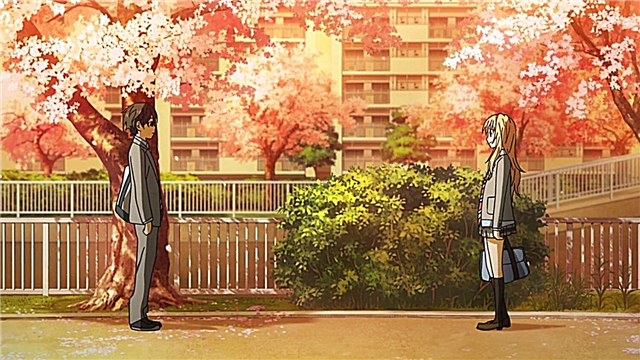The human voice is the most beautiful instrument God has created. The combination of voice and sounds of musical instruments in a dramatic performance is the pinnacle of human artistic achievement. This is opera. Below are the 10 greatest operas of all time.
10. Antonio Vivaldi: L'Olimpiade
Vivaldi is well known for The Four Seasons and several other concerts. But the composer himself considered himself primarily an author of operas. Vivaldi spent most of his career as a traveling impresario, giving performances throughout Europe. He was accompanied by two girls. Young sisters-singers took part in his performances, and it was their presence that gave rise to rumors about the dissolute priest-composer.
Librettos of Vivaldi's operas are complex and usually hilarious.
L'Olimpiade, a love story between monarchs and commoners, which happened during the ancient Olympic Games, is one of the most striking compositions by Antonio Vivaldi in this genre.
9.Hector Berlioz: Condemnation of Faust
Eros can not only spice up true love. He can also destroy everything, if destroyed, if everything else is excluded. This is the main theme of Berlioz's Faust, based on the famous story of Goethe. And although technically it is not really an opera, its production can be considered as such.
Faust, tired only of philosophical pursuits, was seduced by Mephistopheles. Margarita served as the bait for temptation. When the desire to possess her completely consumed Faust, he sells his soul to the devil in order to save Margarita from death. In the culminating Journey to the Abyss, Mephistopheles leads Faust to his death in the depths of Hell. The darkness of the denouement is eased only by the fact that the soul of the murdered Margarita ascends to Heaven - only here Berlioz changed Goethe's script.
8. P.I. Tchaikovsky: Eugene Onegin
Few composers can compete with Tchaikovsky when it comes to touching the very depths of the human soul, paving the way to the very heart.
Based on the poem of the same name, Tchaikovsky's music tells the story of a beautiful young Tatiana, who falls in love with her sister's fiancé friend. Onegin is a cautious person and cannot reciprocate Tatiana.
Further events develop in a tragic way. A dispute flares up between Onegin and his friend Lensky, which ends with the death of Lensky in a duel.
After many years of being away from Tatyana, Onegin realizes that he really loves her. But it is too late: Tatiana is married and is determined to remain faithful to her husband. Despite still strong feelings for Onegin, she refuses him. The opera ends with Onegin's loneliness.
7. Wolfgang Amadeus Mozart: The Abduction from the Seraglio
The Magic Flute is as delightful and deep, filled with high mood and strong feeling, as all its other predecessors - the great operas of Mozart.
The Abduction from the Seraglio demonstrates the composer's skill in opera writing and his ability to portray the comic and tragic moments of life in a seamless musical mosaic. The story is simple: two Spaniards went to rescue their loved ones from the Turkish harem. The happy ending is typical for Mozart and does not surprise - the seemingly villainous Turkish Pasha gives his prisoners freedom.
6.Hector Berlioz: Benvenuto Cellini
The son of an atheist father and a Catholic mother, Berlioz's work often reflects this dual religious heritage. Benvenuto Cellini is a story about the Renaissance artist of the same name, who created the great statue of Perseus.
Cellini is clearly a model for Berlioz himself: an artist who overcomes all obstacles, including those set by the Church, in order to find his true love, prove his superiority to his peers, and demonstrate that man is really the measure of everything.
5. Giuseppe Verdi: La Traviata ("The Fallen Woman")
La Traviata is by far the most outspoken and controversial opera in mid-nineteenth century Victorian Europe. This tragic love story of a young courtesan Violetta and a nobleman Alfredo, in the eyes of critics, surpassed even the scandalous eighteenth-century Don Juan Mozart in its unworthiness.
The opera uses plot transitions typical of misunderstandings between lovers and a failed, but so desired and expected, happy ending due to Violetta, who is terminally ill with tuberculosis.
4. Gioacchino Rossini: The Barber of Seville
Gioacchino Rossini can be considered to some extent the successor of Mozart, although his energetic operas were not as sublime and did not have the depth characteristic of Mozart.
The Barber of Seville is a kind of epilogue for Mozart's Figaro. It is about the adventures of the same cheerful, sometimes a little insidious servant, whose wedding is the basis of the previous opera. The characters and their mischief will be familiar to those who love Figaro.
3. Georges Bizet: Carmen
It's amazing that musical snobs still turn up their noses at the sound of this great opera. Based on the novel by Prosper Mérimée, the main storyline is the seduction of the weak-willed Don Jose. He is a Spanish officer who leaves his family, forgets about duty, tarnishes honor and virtue, loses his mind and finally gives up his soul due to an all-consuming desire to possess a beautiful gypsy.
The music for Carmen's arias is the most seductive in the repertoire, so don José cannot be accused of succumbing to temptation. Later, being rejected by Carmen, in every gesture and word, longing is acutely felt.
The finale of the opera is tragic: Carmen is killed by the rejected lover, driven to complete despair.
2. Wolfgang Amadeus Mozart: Don Giovanni
At a time when the opera was either buffa - comic, or a series - serious, Mozart and his librettist Lorenzo da Ponte created something that did not fit into either format, and called it a playful drama.
This is a story about the aristocrat Don Giovanni, whose goal in life is to seduce as many women as possible by any means, be it persuasion or strength.
Mozart's masterpiece perfectly combines serious, even frightening, with humor. He is fascinated with human relations, and although according to the plot many actions were performed due to the tension between the don and his servant Leporello, Mozart sees social classes not as determining for human interaction, but as a lens through which human nature can be better studied.
The opera has been controversial since its premiere. Romantics who disliked the old-fashioned moralization often abbreviated the opera's final sextet, in which the surviving characters understand Don’s fall and perceive him as, "So this is a villain."
And although Mozart was sure that the lustful Don appears at the end of the opera, there is no doubt that the composer could not help but admire the valor of Giovanni, who runs around the other characters of the opera, leaving them with his nose, and who is defeated only by an act of supernatural revenge. ...
1. Wolfgang Amadeus Mozart: The Marriage of Figaro
“Perhaps this is Mozart's most favorite opera,” librettist Da Ponte said of Count Almaviva's attempt to seduce the maid Suzanne, besides Figaro's fiancée. Although the aristocracy and the count himself mock the right of the first night, as in Don Giovanni, Mozart is less attentive to interclass relations. Much more exciting is the battle of the sexes, since it is in it that the human soul is revealed and with an eye to souls, alliances are then created.
Suzanne and the neglected countess, for example, are going to play a prank with the count, thwarting his attempt to have an underground date with his wife's maid. The Aria of the Wind, performed by two women as they conspire, is one of the most enchanting pieces ever produced by the composer.
And since The Marriage of Figaro is still an opera buffa, the plot's denouement is very exciting: the repentant count asks the countess for forgiveness, and order is restored.
We recommend watching:
A video that introduces you to ten of the greatest and most famous opera arias, created by the greatest composers of all time:



